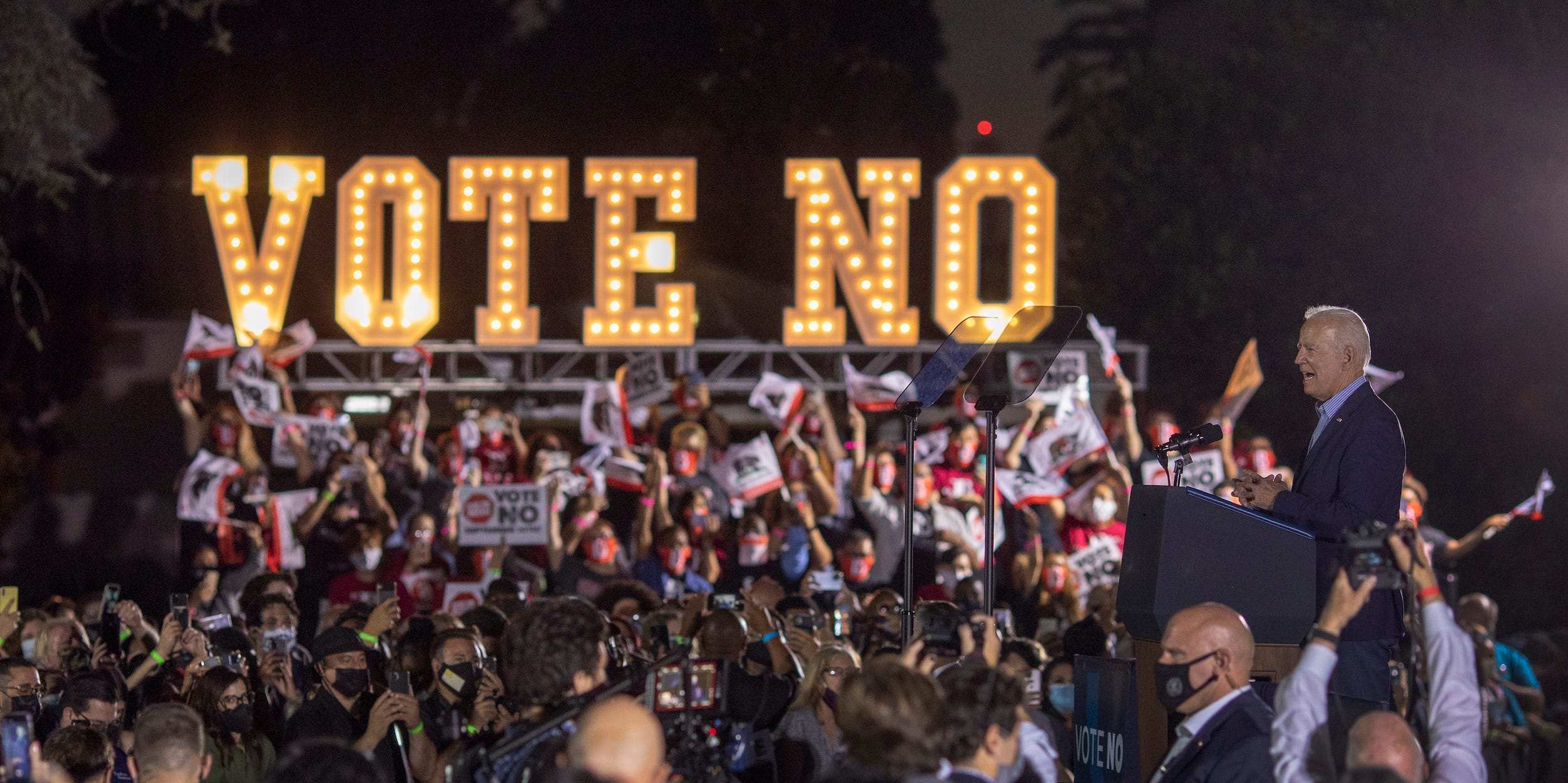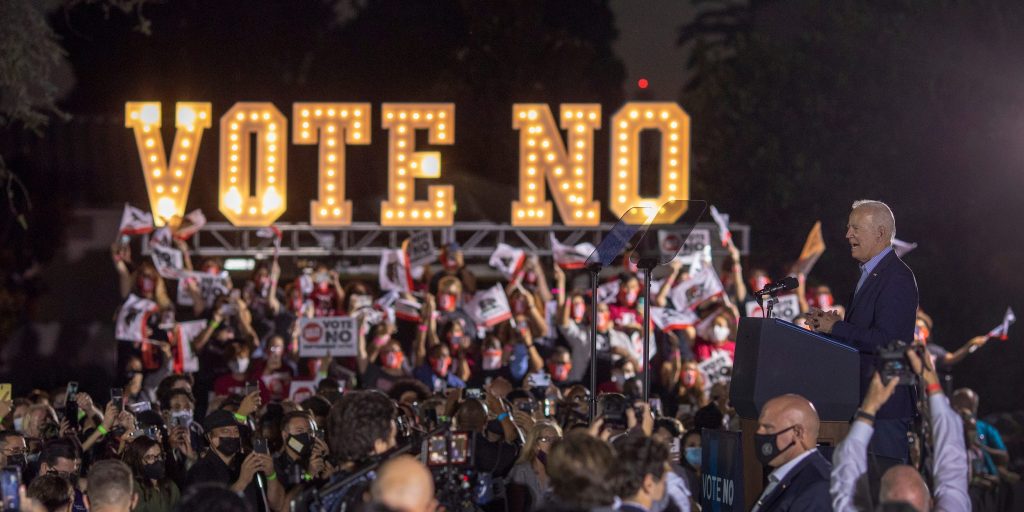
David McNew/Getty Images)
- California's September 14 recall election saw Gov. Gavin Newsom retain statewide power with ease.
- But a politics expert told Insider this could spark similar recall efforts across 19 states.
- "The other party is out of power, usually frustrated, and just trying to do something to disrupt the status quo," Ben Kaplan said.
- See more stories on Insider's business page.
California Gov. Gavin Newsom kept his governorship with ease in Tuesday's statewide recall election, with several outlets calling the race less than an hour after polls closed across the state.
But the high-profile, expensive attempt by politically-weak Republicans in the Golden State to unseat the Democratic governor – who is up for reelection next year – could have far-reaching implications for elected officials across the country.
California is one of 19 states where voters can oust their leaders before a regularly-scheduled election through a recall effort. And while the effort to unseat Newsom has drawn sharp criticism from some who argue the process to recall elected officials should be tougher, one polling expert told Insider California's well-watched referendum could spark repeats throughout the US.
"I would expect to see a lot of other efforts to recall other politicians on the left and the right as a result of this, because it was so high profile," Ben Kaplan, CEO of TOP Government, a politics and issue advocacy agency, said.
States in which one party is overwhelmingly dominant will be most likely to witness increased recall efforts, according to Kaplan.
"The other party is out of power, usually frustrated, and just trying to do something to disrupt the status quo," he said. "They feel like they can't win an election if it's a normal election, so they have to find some other way."
In states where political control is more evenly shared, Kaplan said efforts to replace elected officials will, for the most part, continue to be decided during regularly-scheduled elections.
Of the 19 states that allow recalls, each one has its own criteria determining the circumstances and requirements surrounding the effort. California, notably, has one of the lowest bars for triggering a recall election.
Several states require support from at least 25% of voters who participated in the last election to generate a recall. But statewide officers in California can be recalled with only 12% of the previous vote, and additional signatures from at least five counties, according to the National Conference of State Legislatures.
Similarly, while Colorado, Idaho, and Michigan allow only 60 days for a recall petition to be circulated, California allows 160 days for jurisdictions with more than 50,000 registered voters.
The leaders of the Newsom recall effort received extra assistance on that front, when a judge extended the circulation deadline by an extra 120 days last November due to coronavirus restrictions.
But while the threshold to trigger a recall election may be higher in most other states compared to California, Kaplan said people will likely still try to launch their own attempts, especially given the national publicity California's gubernatorial recall was able to generate in the months leading up to the vote.
Five different attempts to recall Newsom had failed by the end of 2020 with little fanfare. But a blunder on the governor's part in November 2020 - he was photographed attending a lobbyist friend's birthday dinner with several people during the height of the COVID-19 pandemic after months of instructing Californians to avoid such gatherings - kicked the campaign to the forefront of California politics.
A sixth petition, led by a retired sheriff's sergeant, Orrin Heatlie, and his California Patriot Coalition, collected the required number of signatures in the spring, triggering the election.
"Now, a politician is only one viral gaffe away from giving it a lot of credence if a recall is already in place," Kaplan said.
Despite Newsom's eventual win, Kaplan said Republicans' success in getting the recall effort in front of voters, could provide a roadmap, or at least, a glimmer of hope for those making similar attempts in their own states.
"I think other people will try to get these recalls in place with the hope that there might be some kind of unifying moment that suddenly makes it something that can be on the ballot," he said.
Whether California's watershed moment will spark copycat attempts remains to be seen. But either way, the election was an important one, Kaplan argued, providing one of the only high-profile harbingers of what's to come as a divided nation looks to the 2022 elections and beyond.
